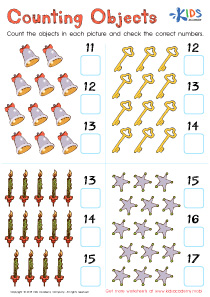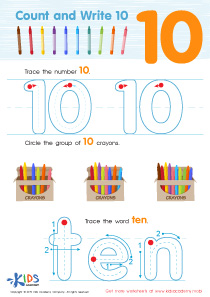Handwriting practice Normal Numbers 0–10 Worksheets
3 filtered results
-
From - To
Elevate your child's handwriting skills with our engaging Handwriting Practice Normal Numbers 0-10 worksheets! Specifically designed for early learners, these worksheets provide a fun and interactive way for kids to practice writing numbers clearly and correctly. Each worksheet features traceable numbers, along with helpful visuals to reinforce number recognition. As children practice, they develop fine motor skills and gain confidence in their handwriting abilities. Perfect for classroom or home use, these worksheets make learning numbers a delightful experience. Start your child's journey to neat and confident handwriting today! Access our comprehensive selection and watch their skills improve!
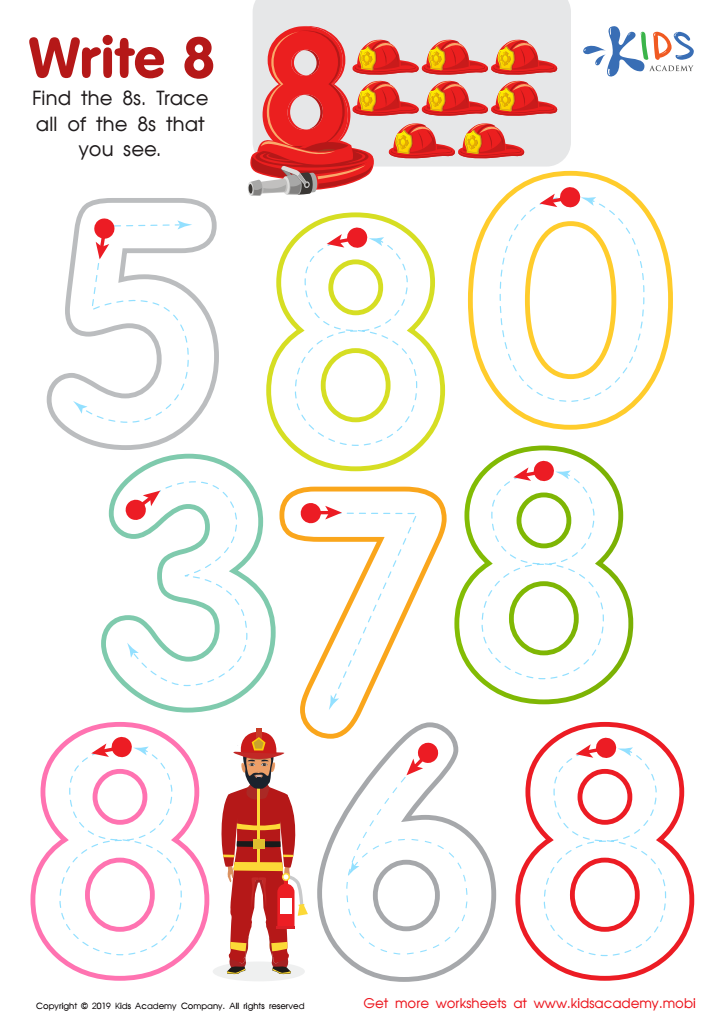

Write 8 Worksheet
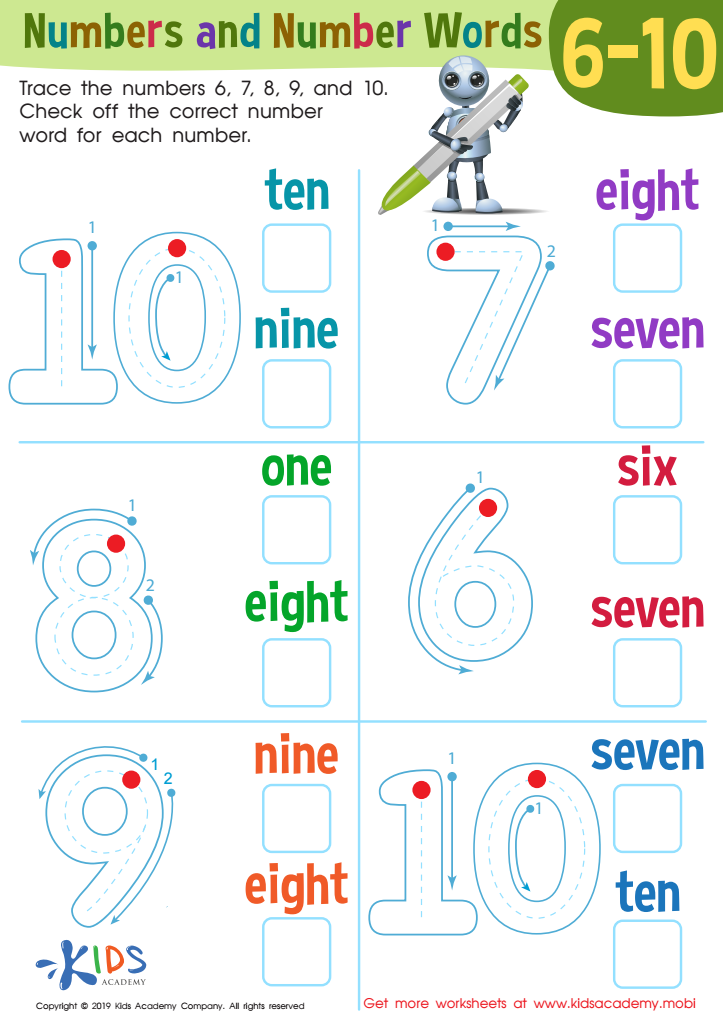

Numbers and Number Words 6–1 Worksheet
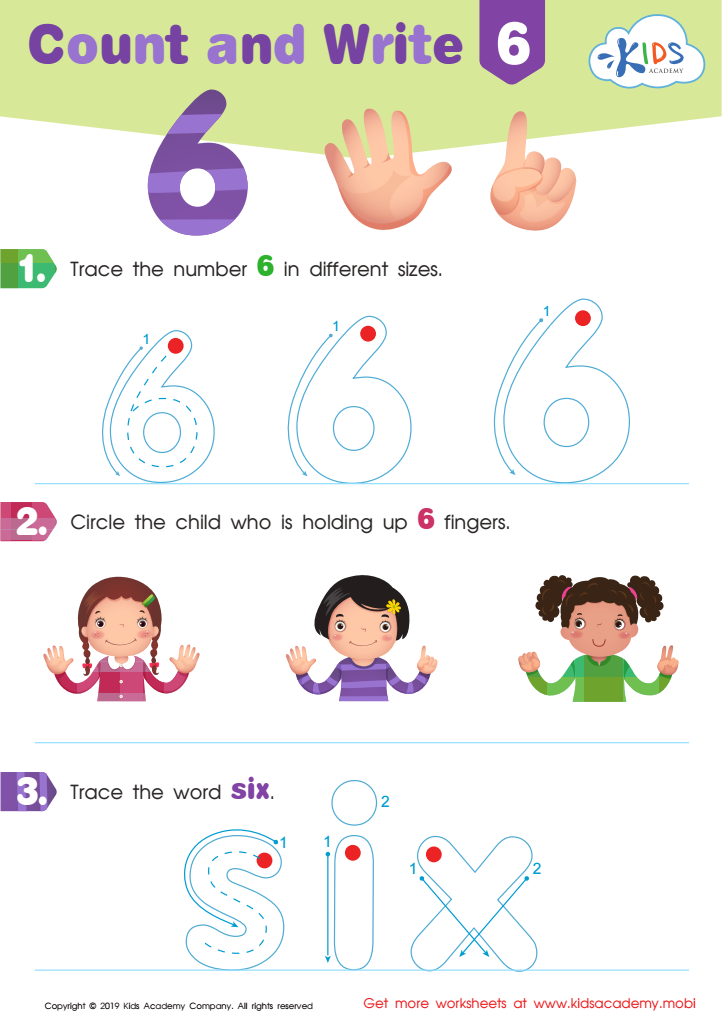

Count and Write 6 Worksheet
Handwriting practice for numbers 0–10 is a critical foundational skill that plays a significant role in early childhood education. First and foremost, mastering these numbers helps reinforce young learners' understanding of basic numeracy and math concepts. When children write each number, they engage both fine motor skills and cognitive processing, enhancing their hand-eye coordination and spatial awareness.
Furthermore, developing proper handwriting techniques at an early age fosters greater confidence in children as they advance to more complex mathematical concepts. This early familiarity sets a positive tone for a lifelong relationship with numbers, aiding in tasks ranging from simple counting to later mathematical operations.
Additionally, consistent handwriting practice helps promote correct numeral formation, which is crucial in ensuring legibility. This clear communication is not only essential in academic settings but also in daily life, where they will need to fill out forms, take notes, or label items.
Moreover, handwriting practice can be a bonding experience for parents and teachers, as they can engage with students during these activities, sharing tips, encouragement, and positive reinforcement. In fostering these skills, caregivers help provide children with the tools they need for academic success and everyday life.
 Assign to My Students
Assign to My Students









